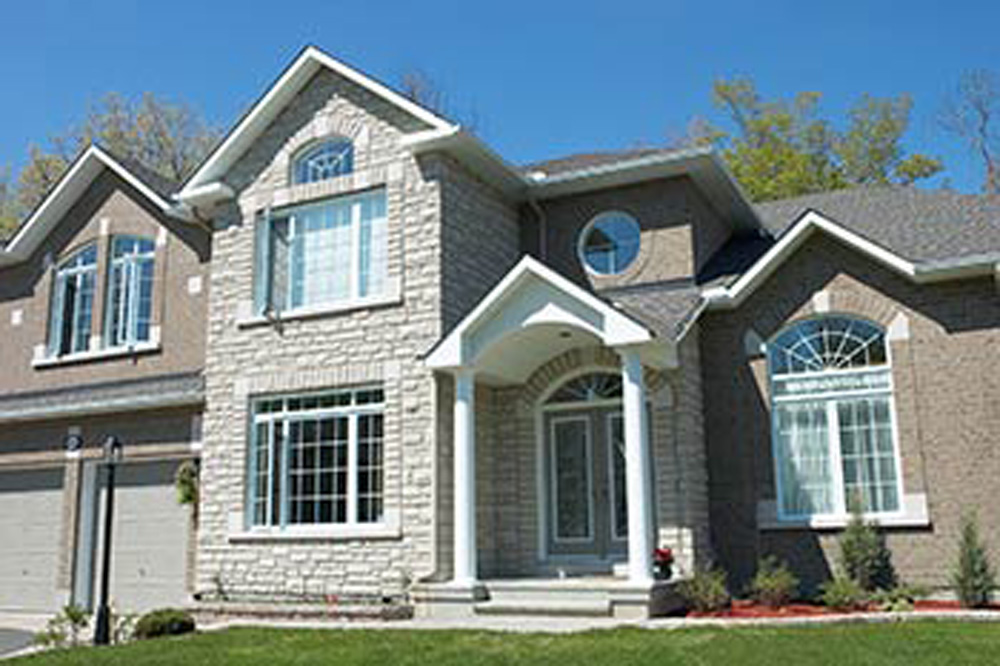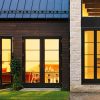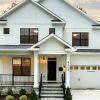According to the U.S. Department of Energy, more than 25 percent of an average household’s energy use is lost through inefficient or leaky windows, doors and skylights. As a result, buying energy-efficient windows can save you up to 15 percent on your energy bills. Generally, the more efficient a window is, the higher the price, but even moderately-priced models can help you save on your utility bills and feel more comfortable in your home. To make sure you’re getting the most efficient windows for your budget, there are a few key measurements to consider.

Window Efficiency Ratings
Energy performance ratings will tell you whether or not a window or skylight is likely to gain or lose heat or transmit sunlight into your home. Heat can be added or removed from a home directly by conduction through a window’s glass and frame, or through air leakage. Radiant heat, like from the sun, can also be added to a room through the windows.
Energy Star rated products meet the U.S. Department of Energy’s standards for superior energy efficiency, but they’re based only on solar heat gain and U-factor ratings. All Energy Star qualified windows also have a label from the National Fenestration Rating Council (NFRC), which is a voluntary testing, certifying and labeling program to determine energy performance.
Here are some common terms and ratings you’ll see on both labels, and what each of them means.
R-Value measures a window’s resistance to heat flow. A higher R-value indicates a more efficient window.
U-Factor is the rate that heat escapes from the inside to the outside of a home during the winter. In this case, a lower number indicates the window is a better insulator. The number ranges between 0.2 and 1.2 Btu/hr-ft2-oF, and in Kansas City and the rest of the south central U.S., a rating of 0.4 or lower is ideal.
Solar Heat Gain Coefficient (SHGC) is the measurement of how much solar heat enters your home through the window. A lower SHGV indicates less solar heat is transmitted, so heat gain from the sun is reduced in the summer, which can reduce your cooling costs. A window with a high SHGC rating will be better at allowing solar heat to collect in your home, making your heating costs lower in the winter. Here in Kansas City, a SHGC rating of 0.4 or lower is recommended, but there are several factors to consider when choosing the right value for your home, so talk to the professionals at Precision Windows and doors to choose the best product for your situation.
Air Leakage tells you how airtight a window is, so look for one with a low air leakage rating. Energy Star ratings don’t include the rate of air movement because it’s difficult to get an accurate measurement, but if your window will be facing wind and rain directly, this can be a good indicator of how well a product will stand up to the elements.
Visible Transmittance (VT) tells you how much visible sunlight a window will allow to pass through. Thanks to today’s technology, it’s possible to have windows that let in a lot light while blocking solar heat. VT ratings are between 0 and 1, and a lower number will allow less light through, making the room dimmer, while a higher number will make the room brighter. This number is helpful if you want to reduce glare in a certain room.
Buying New Energy-Efficient Windows
When shopping for replacement windows, there are a few features and terms to familiarize yourself with.
Glazing is the industry term for the glass in the window. There can be single, double or triple layers of glazing, but more layers don’t always mean a window is more efficient. The energy performance is determined by a variety of factors, but glazing coatings can have a substantial effect on a window’s degree of insulation.
Low-emissivity (low-E) glass includes a thin metallic coating that reduces energy costs by reflecting heat instead of absorbing it. This means heat will stay inside your house during the winter, and outside the house during the summer. Low-E coatings also block UV rays and allow 95% of natural light through.
Gas fills between layers of glazing slow heat transfer and increase insulation. Usually krypton or argon gas is used.
Spacers can also be used between the glass sheets in a window to prevent heat loss and condensation as well as improve insulation.
Frame materials vary, and each has its own advantages and disadvantages. Vinyl windows offer good insulation and low maintenance, but they are prone to air leakage because they expand and contract as changes in temperature. Wood window frames have a desirable classic look, but they need regular maintenance and are affected by changes in temperature and humidity. Fiberglass windows are heat stable and don’t require much maintenance, but they are usually expensive. Aluminum windows are stable, lightweight and offer good sound proofing, but they conduct heat rapidly, which reduces their energy efficiency.
Benefits of Energy Efficient Windows
Buying windows that are Energy Star rated, with airtight frames, heat-resistant coatings, and insulated glass is a good investment. According to the National Association of Realtors’ “2015 Remodeling Impact Report,” even replacing old windows with new, average-quality vinyl ones has an 80% return on investment.
Replacing your old, leaky windows with more efficient ones can help save energy and money. Depending on your climate, energy efficiency of your new and old windows, and the local cost of energy, you could lower your energy bill by as much as 15% a year by upgrading to new, energy-efficient windows.
How to Improve the Energy Efficiency of your Existing Windows
Storm windows reduce the amount of air leaking into and out of your home, making it more comfortable. Caulking cracks, joints or gaps that are less than ¼ of an inch wide will reduce the amount of air that leaks through them. Adding weatherstripping around doors or windows that move will seal up any gaps between the frames and components. Adding window treatments like curtains and blinds can be an added layer of protection against heat loss in winter and heat gain in summer. In fact, light-colored shades can reduce up to 43% of solar heat gain, according to Home Energy magazine.
About Precision Siding & Windows
Precision Siding & Windows offers premium replacement windows, siding, doors, garage doors, and installation. Our friendly, experienced staff arrives on time and works quickly to complete your home improvements or commercial construction including work on windows, doors, siding, guttering, and roofing.
With over 30 years of experience serving customers in Overland Park, Leawood, Parkville, Kansas City, Ottawa, Lee’s Summit, and even more areas within a 50-mile radius, we guarantee you’ll be satisfied with our high quality of work. Contact us for a free, no-pressure estimate to get started, and ask us about no-interest financing!














